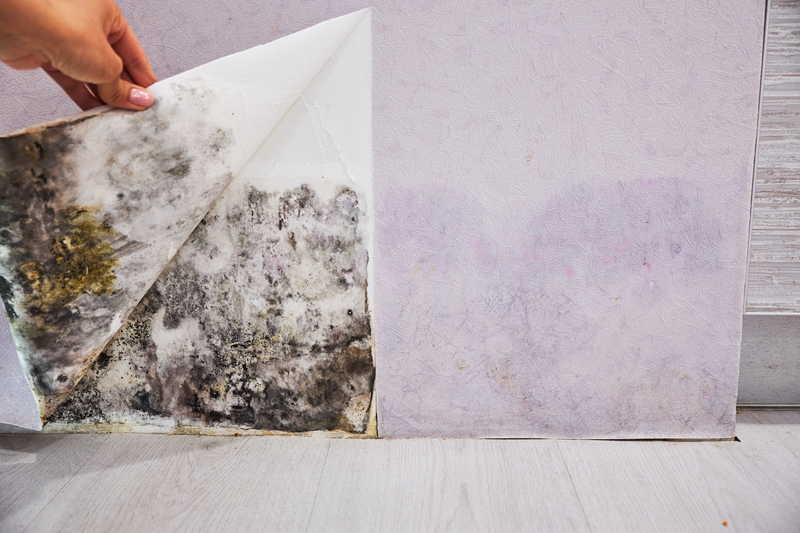Finding mold in your home can be both scary and frustrating. Your first thoughts are probably about your health and then how much is this going to cost to remediate? Don’t panic. It may take some time, paperwork and temporary inconvenience but you will get through this. An experienced mold removal company will patiently walk you through the process and answer any questions you may have.
Can You Still Live in a House with Mold?
It is highly recommended that once mold is discovered in your home, that you have it taken care of as soon as possible. Even if the mold doesn’t seem to be affecting your health, it’s important to fix whatever is causing the moisture and have the mold removed. Left untreated, mold can continue to spread and can eventually lead to health issues especially in people with pre-existing respiratory conditions, allergies or weakened immune systems.[1]
Contact Your Homeowner’s Insurance Company
Contact your insurance agent to discuss your mold situation and find out what damages and repairs may be covered. In many cases, the cause of the mold will determine coverage. At this point, finding a mold remediation company that is willing to work with your insurance adjuster will help things go along much smoother.
Get a Mold Remediation Estimate
Mold removal is definitely a job for the pros. Don’t put your own health at risk when the experts have the proper training and equipment to complete mold remediation jobs. Professionals will inspect your home to determine the type of mold as well as the size and extent of the damage done to your structure. Keep in mind, this is not a DIY project and the cost of hiring specially trained professionals will keep you and your family healthy while your home is returned to its original state.
What Will Happen If You Leave Mold In Your Home?
Regular exposure to mold can lead to moderate to severe health issues such as headaches, chronic coughs, sinus infections, fatigue and even mental issues. People allergic to mold may experience more severe reactions such as shortness of breath. Prolonged exposure can be much worse for children, infants and pregnant women.
Unaddressed leaks and mold can cause wood to rot, affecting the structural integrity of your home. Mold can eat away at materials like wallpaper, drywall, carpeting, floorboards, cabinetry and more. Left unchecked, it can even cause severe damage like the collapse of ceilings, floors and walls. Your personal belongings may also end up wet, moldy and unsalvageable.
When Should I Call the Mold Specialists?
Many homeowners may want to save some money by attempting to handle their mold problem themselves but if the affected area is more than 10 sq. ft., you need the help of experts. The rule of thumb is that areas larger than a bed pillow should be inspected by a licensed mold remediation professional. They will be able to access the extent of the damage and identify mold in places you cannot see. If testing is required, to avoid a conflict of interest a third party not associated with the removal company should be contacted.
Keep in mind, high humidity and any kind of water damage from leaks, fires or floods can cause mold growth. The cause needs to be repaired in order for the remediation and restoration process to be a success.
REFERENCES
James McIntosh. Is mold in your house a problem? What you need to know. Medical News Today. [Internet]. 2019 August 20. [cited 2021 Oct 3] Available from: https://www.medicalnewstoday.com/articles/288651#mold-and-health

